Published on
Updated
Reading 2 min.
For digital natives, love and breakups are experienced both in life and on the networks. The way these generations deal with exes also… with a worrying trend of “revenge porn” well established as indicated by an Ifop/Lemon survey revealed today.
Has the digital age changed the way we end a romantic relationship? While 84% of 18-34 year olds use Instagram, and 81% of 18-24 year olds are on Snapchat and 78% on TikTok, has the way we manage the post-breakup bond changed with social networks? Certainly, as demonstrated by a new survey carried out by the IFOP and FLASHS, at the request of the mobile plan and box comparator Lemon.fr, among a thousand young French people. Digital natives have thus redefined disruption, with practices that are sometimes healthy, but often more toxic, as one might expect.
The ex, source of embarrassment on the networks
What does this study tell us above all? That networks cultivate a certain ambiguity after a separation. Thus, 64% of young people under 35 believe it is possible to remain friends with an ex, but 35% think that there is still ambiguity. For more than a third of respondents, such a friendship is in reality impossible, beyond appearances.
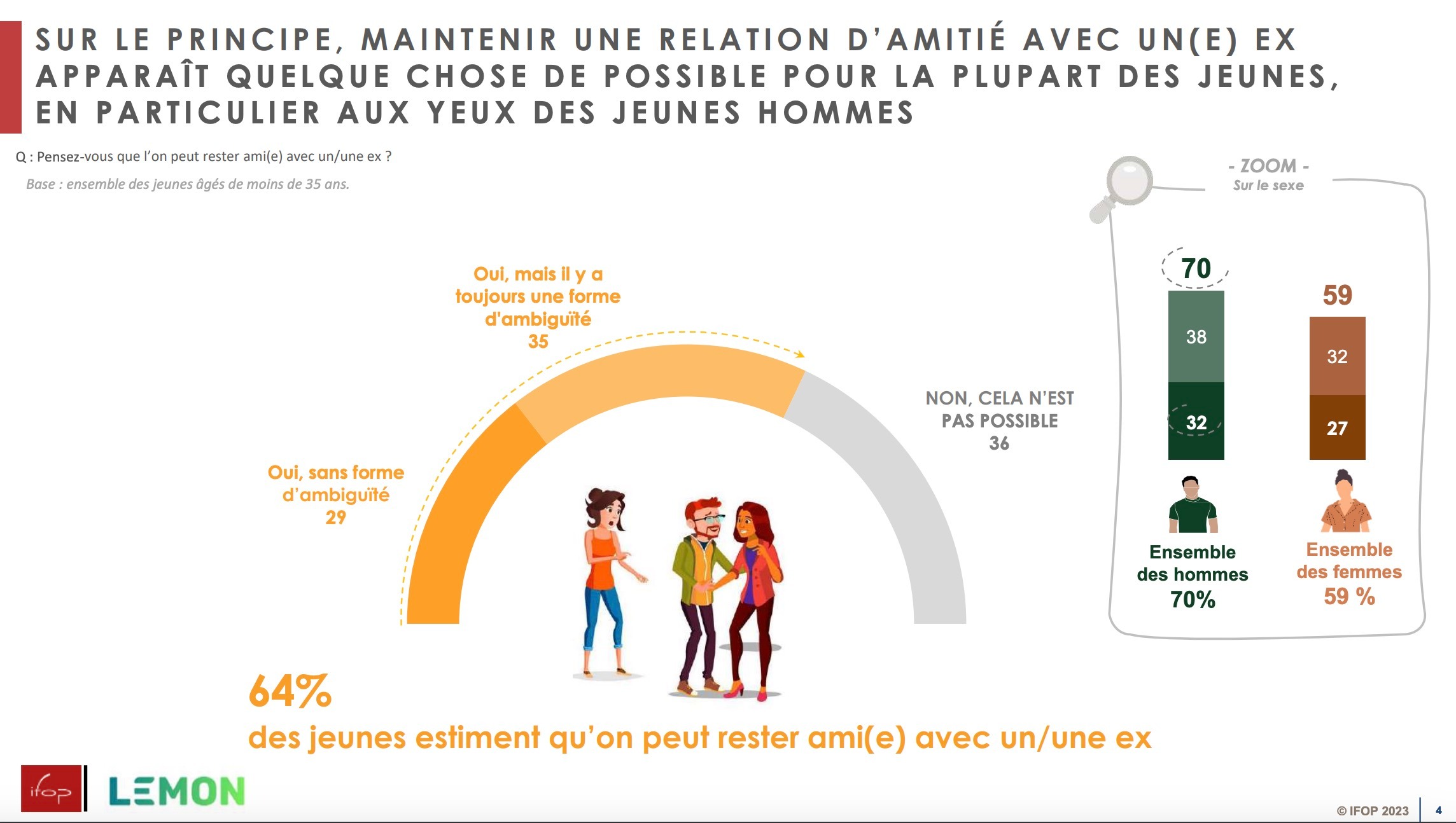
On the contrary, the ex’s presence on the networks would be more of a source of conflict. While 6 out of 10 young people believe that dating an ex in real life could lead to arguments within their relationship, they are just as likely to consider exchanges or the fact of perceiving at least one interaction with an ex to be problematic. ex as a possible source of tension in their current relationship.
With networks, the ex can always be (too) present, which weighs on many couples. 80% of young couples would disapprove of online exchanges between their partner and an ex. There is therefore a difference between the bond of friendship that we pretend to have and the sometimes heavy reality of always seeing an ex in your network and its networks.
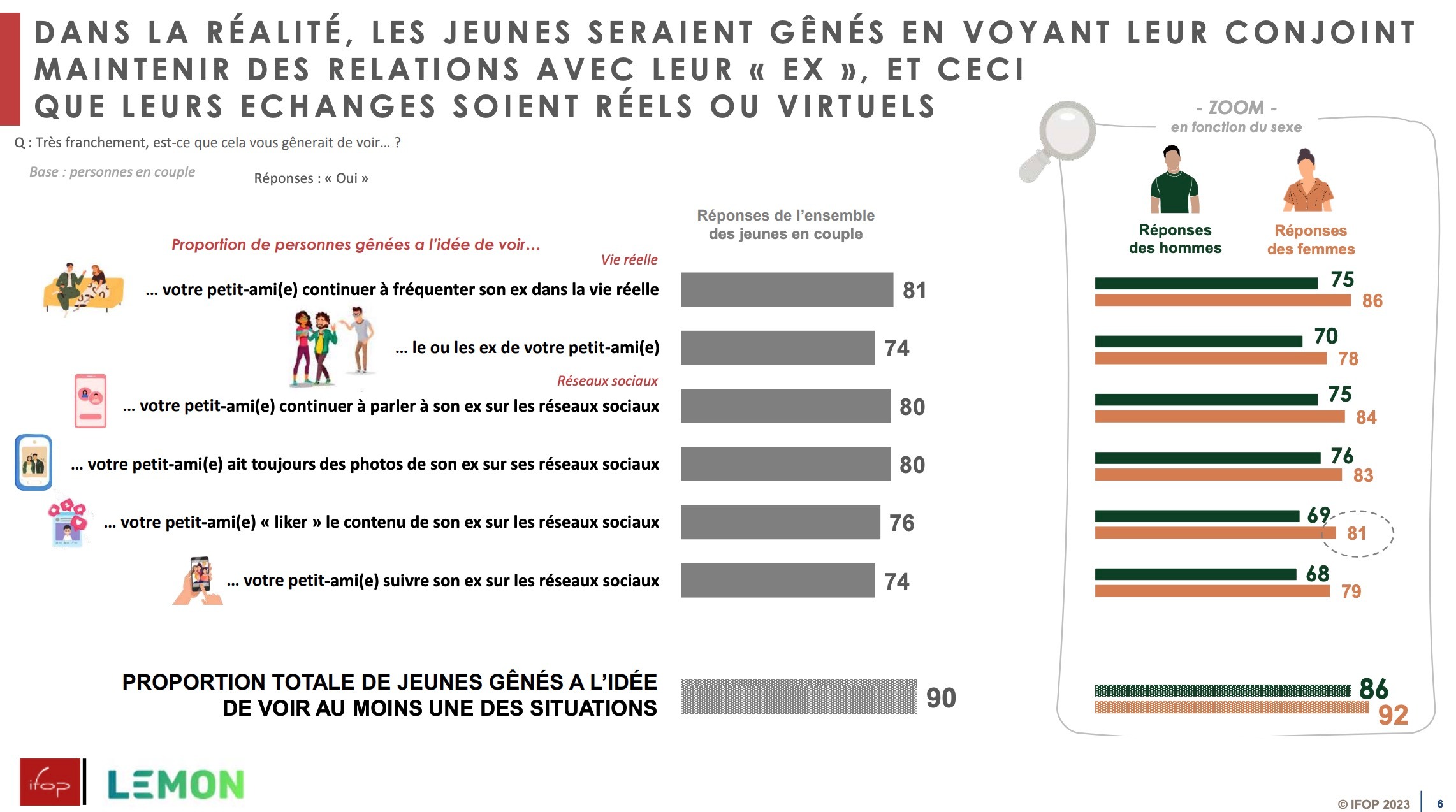
Networks facilitate toxic links
More serious than embarrassment, disappointment and resentment frequently lead to toxic behavior, facilitated by easily accessible data. If 65% of young people claim in the survey to have blocked their ex and deleted their exchanges, other behaviors are nevertheless present:
- Stalking: 43% of young people questioned admit to having already consulted the profile of an ex and 21% still look at it regularly;
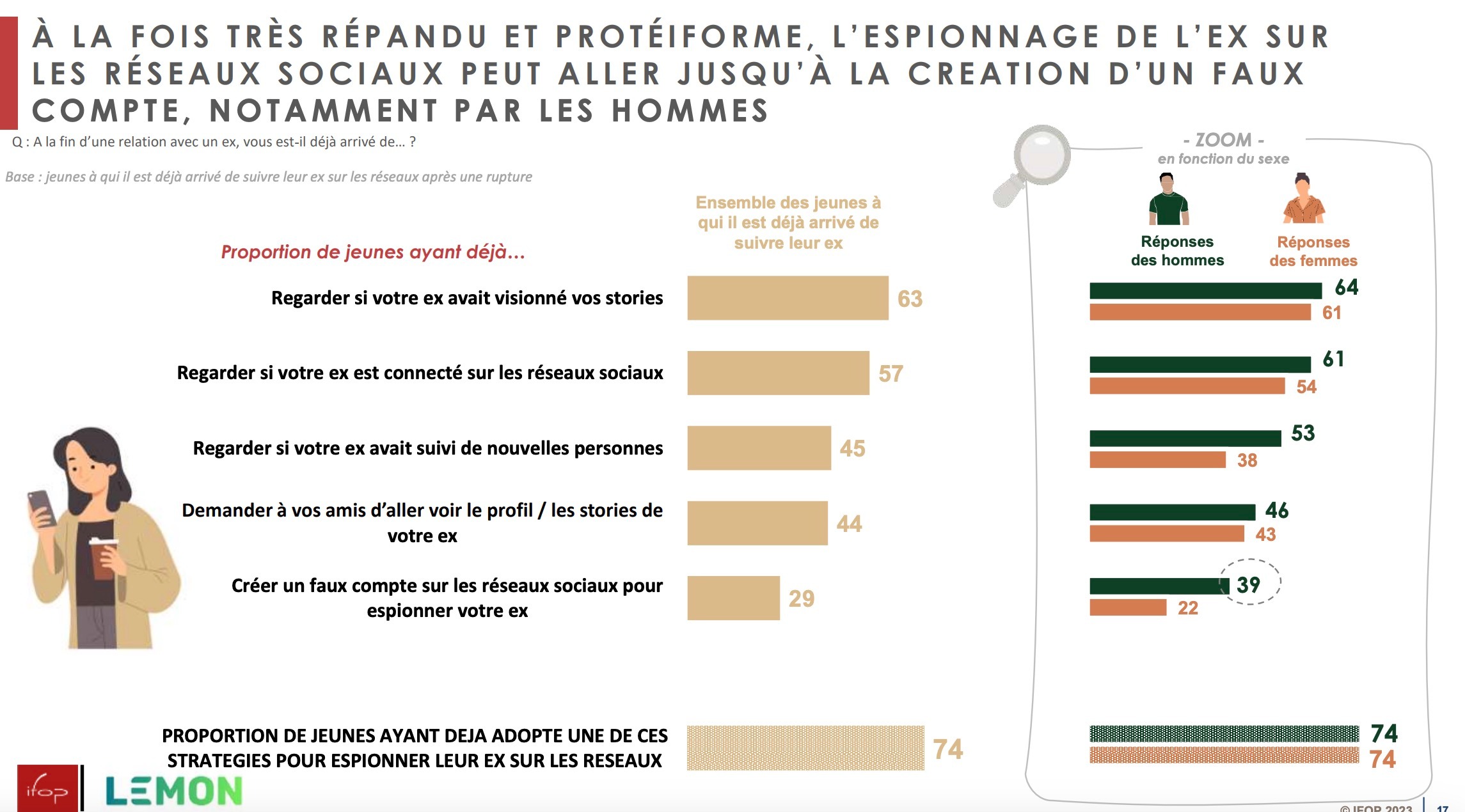
- During the first month following the breakup, 88% of respondents spied on their ex on the networks;
- Jealousy. Others (or the same ones) would use the networks to make their ex jealous by clearly showing themselves with someone and exaggerating their happiness.
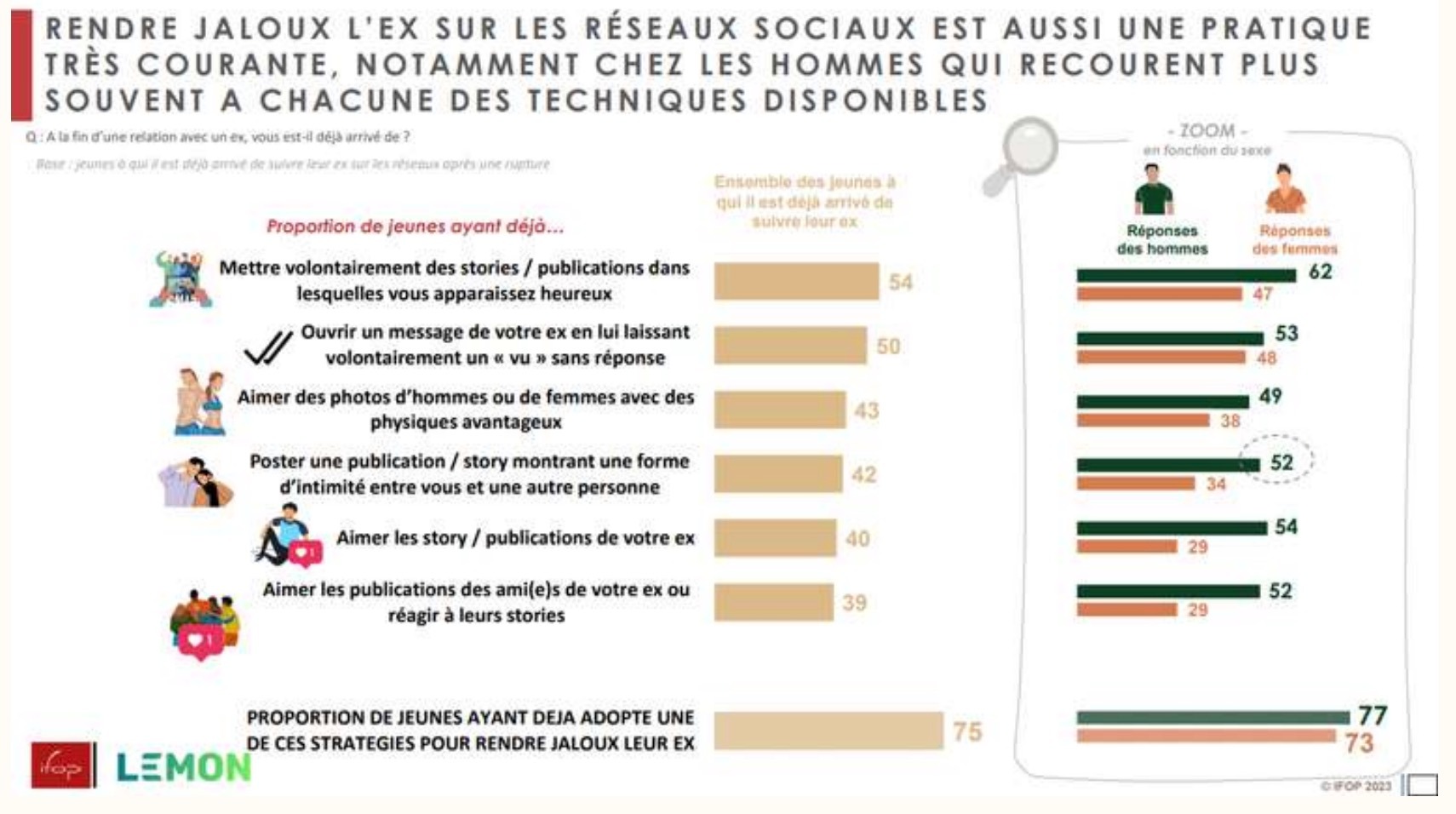
Revenge porn: much more common than you think
Finally, more serious and reprehensible, many young adults use networks to publicly denigrate their ex partners, a practice more common among men than among women.
- Thus, 40% of young men admit to having already denigrated an ex on the networks to damage their reputation compared to 14% of women;
- And 38% of men say they have sent intimate photos of an ex to third parties, an illegal and toxic revenge porn also shared by 14% of young women. 38% is about 4 out of 10 men, not far from half. A figure that can send shivers down your spine.
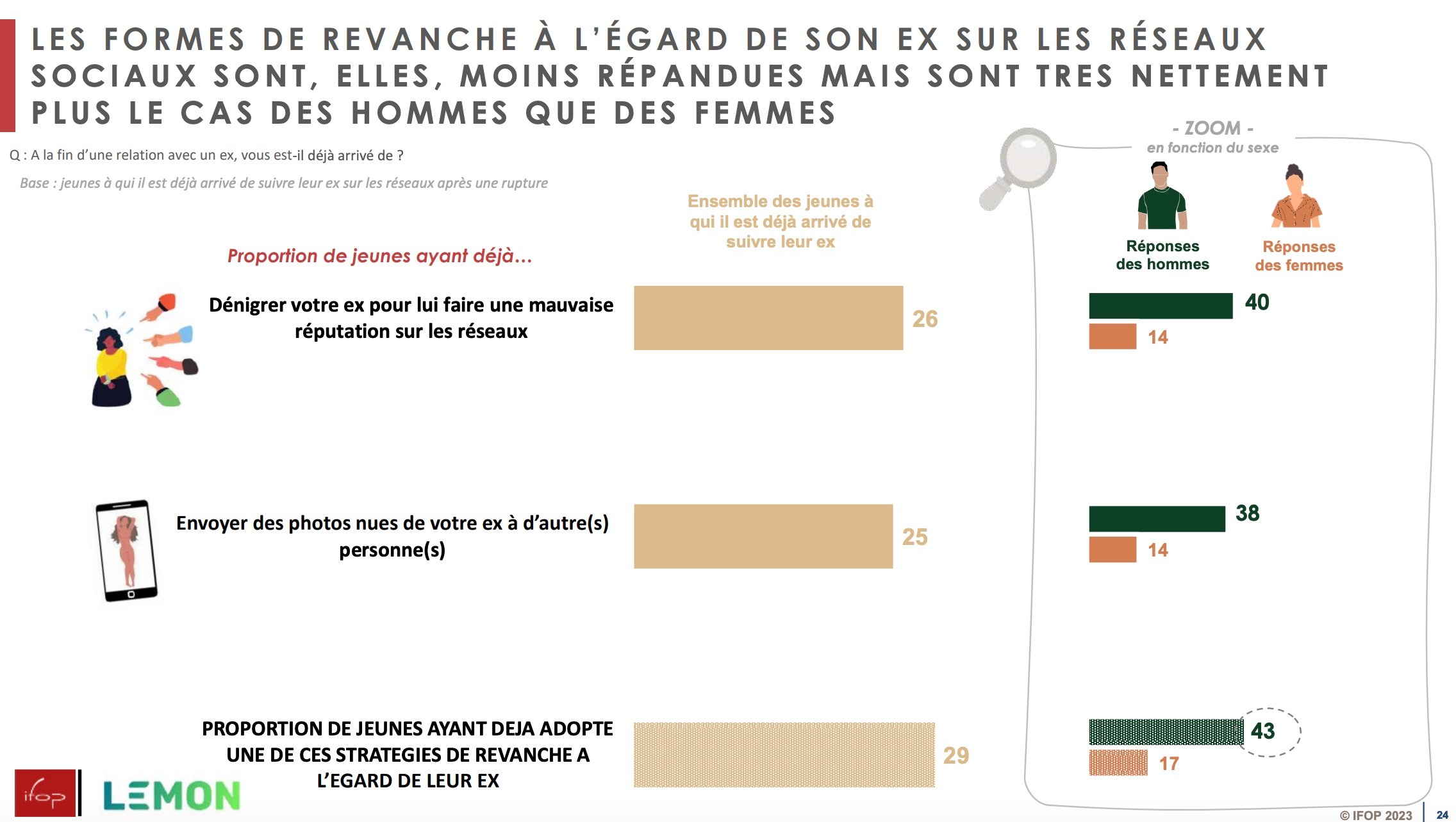
Perpetrators of revenge porn face a sentence of two years in prison and a fine of €60,000. A sentence which increases to five years of imprisonment and a €75,000 fine if the content concerns a minor.
